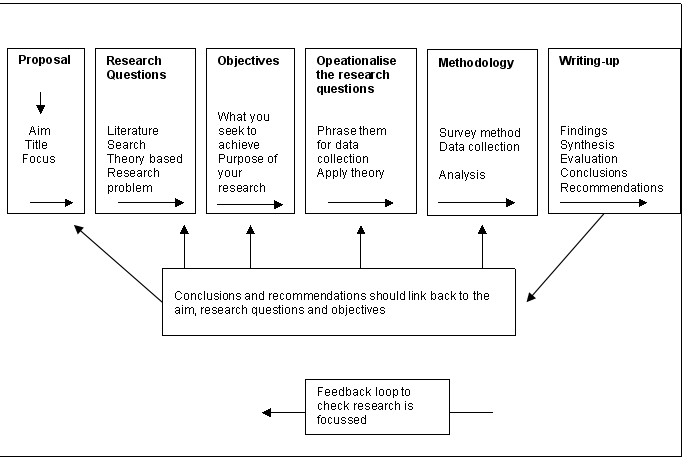The Research Process

The Research Process

Keep a research log/diary from day one and make sure you note down things such as ideas you have had etc…, as at a later date they may become important. It is also essential that you keep details of the books you have read and any notes taken. It is dreadful to find yourself at the writing up stage and unable to locate the source of an important reference – it has happened to more than one person we know!
The key issues which dictate what you do and how you do it include:
the purpose of your research (setting aims and objectives)
the choice of research design
methods of measurement
data collection techniques
sampling techniques
data analysis
writing up conclusions and recommendations (which link back to your purpose)
The timescale for the dissertation/final project process will have been handed out in class. These seven steps from Gill and Johnson (1997) will help you manage it:
Identify the broad area
Select topic
Decide approach
Formulate plan
Collect information
Analyse data
Present findings
If you do not give enough thought and time to the first four steps then you will find that you have difficulties completing the research as you have a poor focus on what it is you are doing.
The process starts with a proposal of research ideas. The exact number of stages varies but will always include formulating and clarifying the topic, reviewing the literature, choosing a method, collecting and analysing data and writing up. The following model has been developed by drawing on references from a range of research methodology texts. (Bell 1993; Gill and Johnson 1997; Robson 1997; Saunders, Lewis and Thornhill 2000; Sharp and Howard 1996)
m.elviscollections.com
